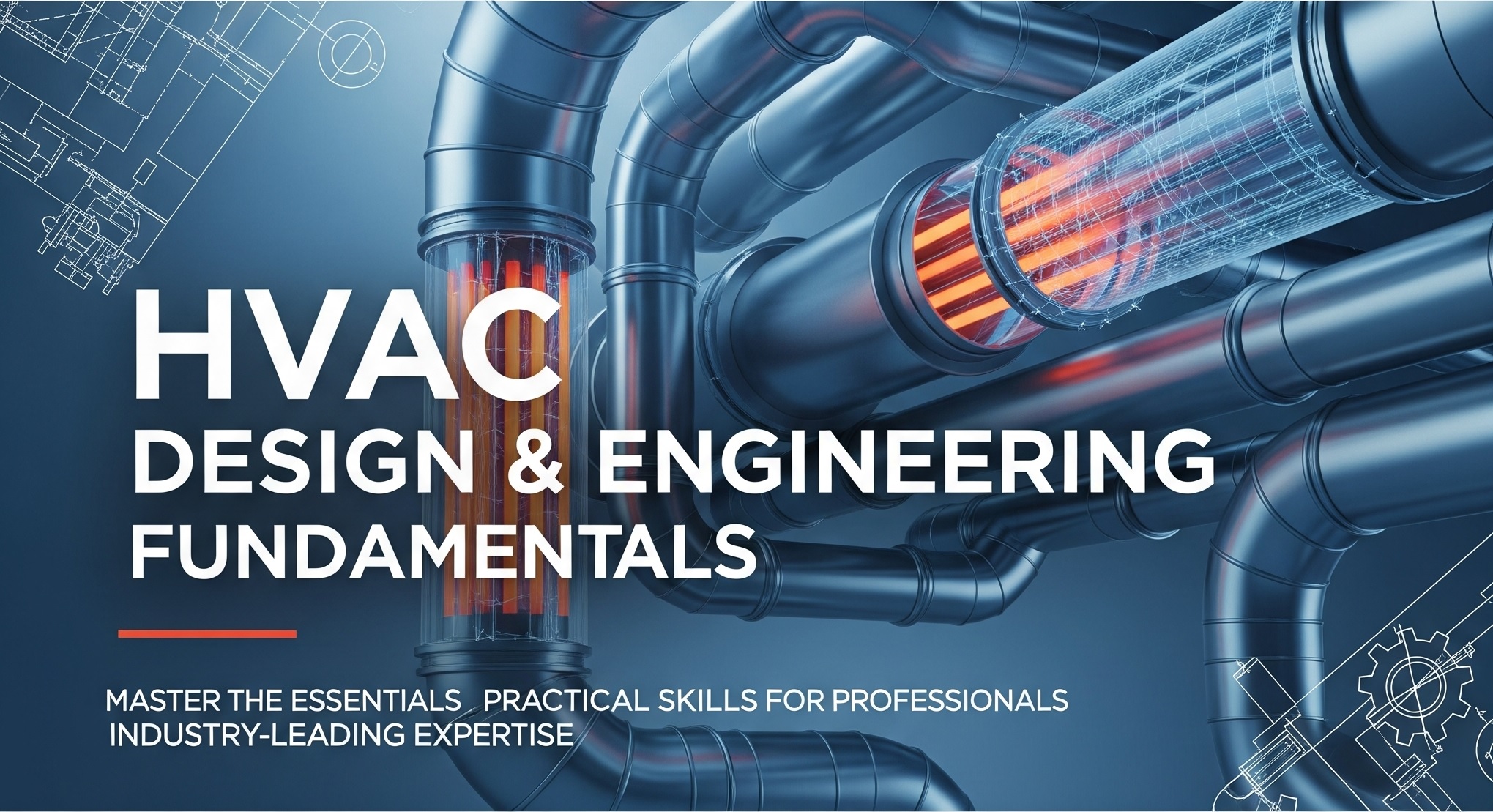HVAC Design & Engineering Fundamentals
This course provides a solid foundation in HVAC design and engineering. Students will explore the essential principles of thermodynamics, psychrometrics, and airflow, before moving into practical applications such as heating/cooling load calculations, ductwork and piping design, and equipment selection. The course also covers codes and standards, energy efficiency strategies, and troubleshooting basics. By the end, learners will have the skills to design and evaluate HVAC systems for residential, commercial, and industrial buildings.

This course includes:
- 28 video lessons
- Study materials & resources
- Quizzes and assessments
- Certificate of completion
- Lifetime access
- Mobile & desktop access
About This Course
This course provides a solid foundation in HVAC design and engineering. Students will explore the essential principles of thermodynamics, psychrometrics, and airflow, before moving into practical applications such as heating/cooling load calculations, ductwork and piping design, and equipment selection. The course also covers codes and standards, energy efficiency strategies, and troubleshooting basics. By the end, learners will have the skills to design and evaluate HVAC systems for residential, commercial, and industrial buildings.
What You'll Learn
Course Curriculum
Introduction to HVAC Design
Learn the basics of HVAC design, including system types, heat transfer fundamentals, and psychrometric chart applications.
Heating & Cooling Load Calculations
Explore methods for calculating heating and cooling loads to ensure accurate system sizing and efficient performance.
Air Distribution & Duct Design
nderstand airflow principles, duct sizing methods, and strategies for effective air distribution in buildings.
Hydronic Systems & Piping Design
Learn the design of chilled water and hot water systems, including pipe sizing, pump selection, and system balancing.
HVAC Equipment Selection
Gain knowledge on selecting the right HVAC equipment such as chillers, boilers, AHUs, FCUs, and VRF systems.
Codes, Standards & Energy Efficiency
Apply ASHRAE standards, local codes, and green building practices while avoiding common design mistakes.
Prerequisites
- Basic understanding of HVAC system components
- Knowledge of mechanical/electrical drawings
- Familiarity with heat transfer and fluid flow concepts
- 2+ years of experience in MEP (recommended, not mandatory)
Instructor
System User
MEP Engineering Expert